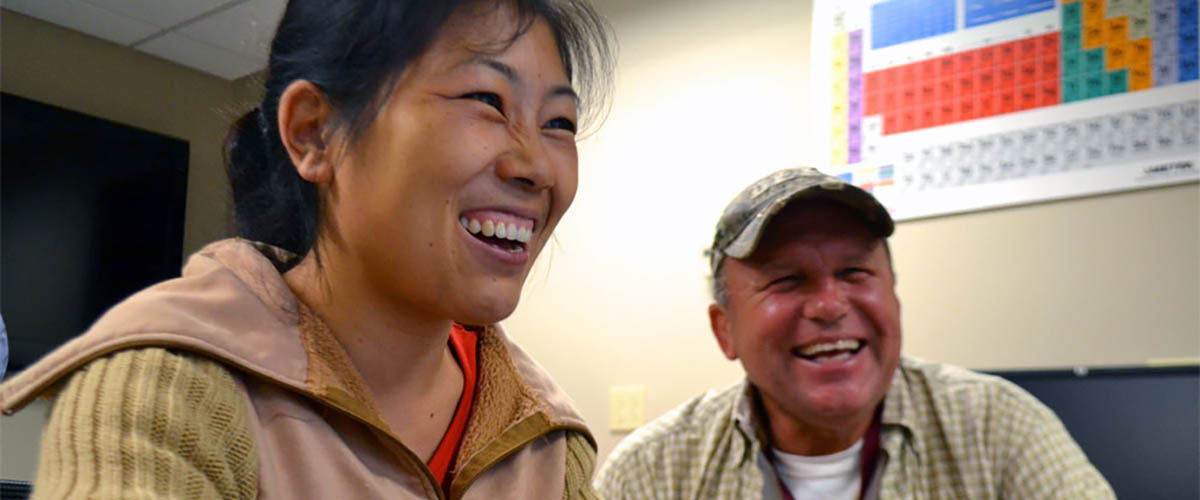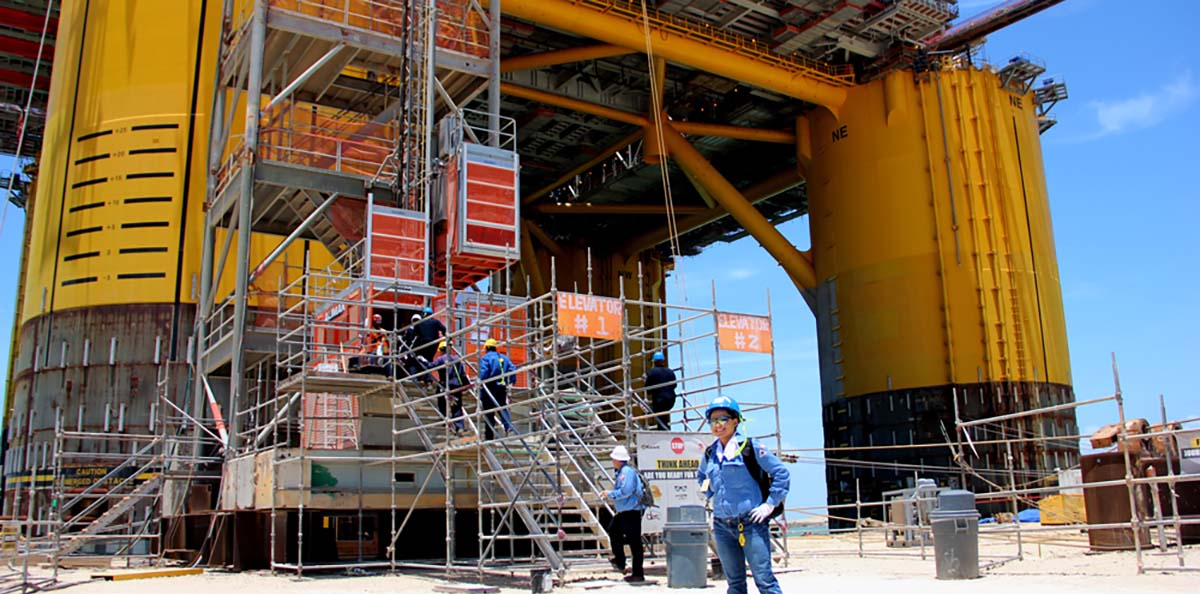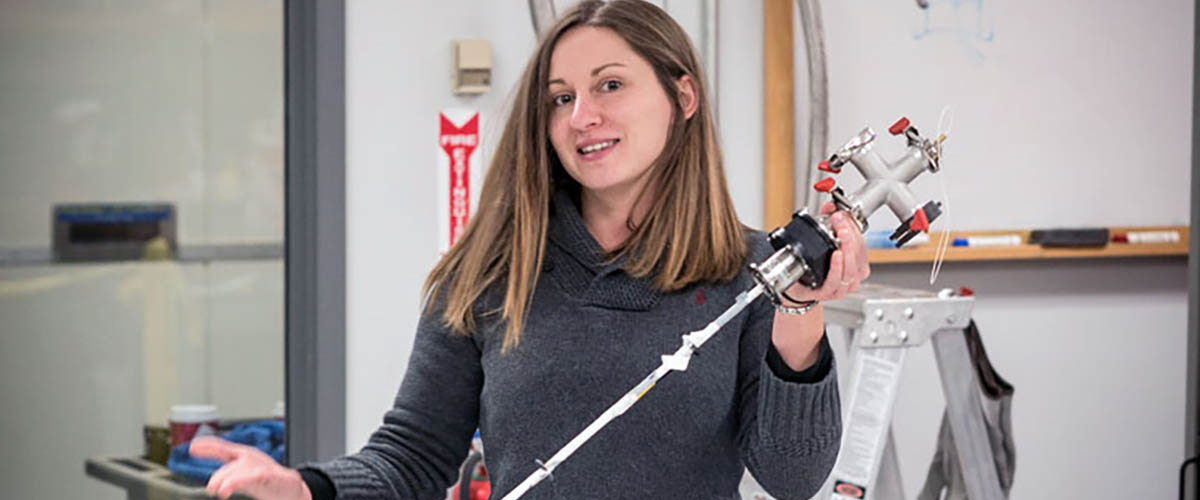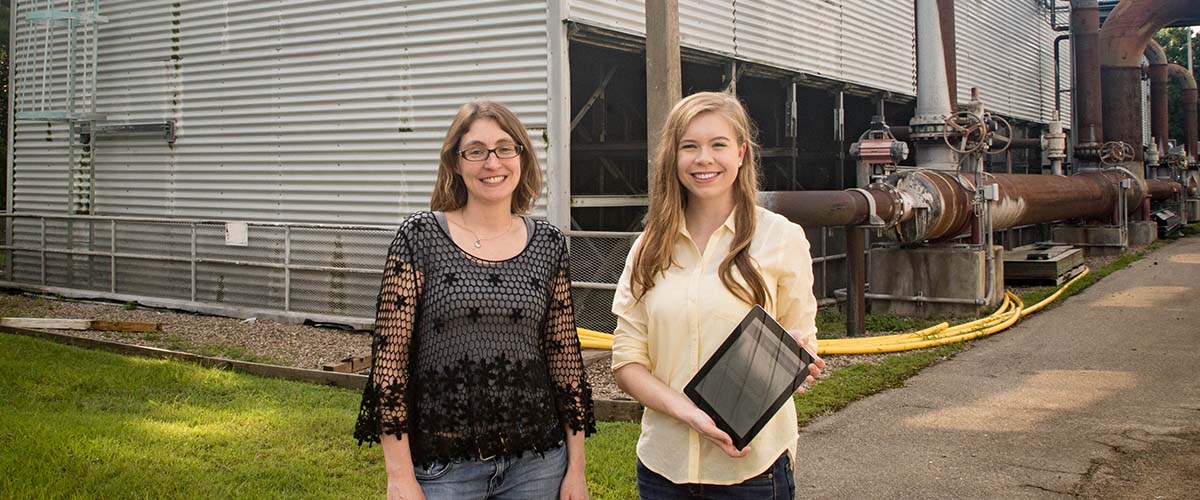Some time back, I was looking for educational material to help my students understand the "why and how" of electricity, and in order to get to the root of the issue, I decided to do a lesson or two on magnetism.
In my search, I kept finding good lessons from the National High Magnetic Field Laboratory website — which, I learned, was located not in California or at MIT but at our own Florida State University. I was soon to discover that there was a program there where public school teachers could spend a summer working alongside a MagLab scientist on a research experience. Without delay, I applied.
When I was notified that I'd been accepted, I could not believe my good fortune. (I remember thinking it must have been a computer glitch, but I wasn't going to mention it.) My summer plans quickly changed, and I headed to Tallahassee to become a "scientist." Little did I know that I would learn how to be a better teacher and a better human being in addition to the scientific knowledge I would acquire.
As a summer Research Experiences for Teachers (RET) intern at the MagLab, I was to experience science firsthand on the research level. My excitement was hard to hold inside my little brain. I would be asking questions and digging for answers on important topics which could change "life as we know it!" As you might have guessed, I was excited. Not only to do "real science" (instead of reading about someone else who "did" real science and then teaching about all the fun they had doing it), but to be a student again. I, like most teachers I know, really like going to school. The joy and adventure of learning can bring life to your bones.
To make a long story short, my scientific dreams and hopes were fulfilled. I worked in the microanalysis lab, where we examined the characteristics of a type of carbon fiber. We called it E23. It's a very strong (up to six times stronger than steel!) yet very lightweight fiber. Our quest was to examine it on a molecular level and to test it to see if it could perhaps be used in situations where very high stress loads are required. Like those in certain types of magnets (but more on that later).
I was assigned a mentor scientist who would lead my adventure and allow me to walk beside her on this research path. My mentor, Rongmei Niu, is currently testing E23 carbon fiber for possible use in future pulsed magnet reinforcement casings. Pulsed magnets can be made to reach very high fields because they do not hold the magnetic field very long. The trouble is that they are so strong that they often destroy themselves in the process of creating such tremendous magnetic forces. My time at the lab was to create samples for examination and testing in order to establish a verified database concerning carbon fiber E23. We were to establish the fiber's performance and mechanical limit data and to examine its atomic structure. The potential goal of this research was to build a reusable pulsed magnet that would be twice as strong as any currently available. These types of strong magnetic fields help us identify atomic changes on a microscopic scale.
I love to talk about science and why and how things work the way they do, so I know I will share my small part in this important research with my students and fellow teachers at Bok Academy this fall. After all, I am a teacher there! But for the most part, this summer I learned what it's like to be on the "other side." Thanks to my mentor, I also learned how, as a teacher, I can help my students gain a broader perspective socially as well as grow intellectually. In other words: I can help them become better people at the same time they gain more knowledge. This is bigger than standardized testing … it is about being human. Bigger than "Common Core" … it is the core!
As a teacher, I am called to be a mentor to the students that I teach. But as a MagLab intern, I experienced again what it is to be mentored. As I reflect upon this experience, two things stand out. I now see science as a "way of knowing," but not the "way of knowing." Science is a lot like growing up. Your ideas change as you get more experience. And second, I now remember how hard school years are and that being a student is more than learning new things. It also includes learning that is emotional.
Early on during my time at the MagLab, I asked a question about something I did not understand. My mentor could have easily discounted my naiveté and moved on without ensuring that I really understood. But she didn't. She stopped and answered what now seems to me a "stupid" question. She took the time to make sure I was on the "right page" of our playbook, so to speak. I really hope I always remember that feeling of being cared for by those who knew more than me. It made me want to work even harder to learn from them what I needed to know.
I hope to mentor my students and share with them some of the knowledge and skills that will serve them in their lives ahead. I hope to experience the joy of learning with them and experience their struggles with course content, classmates, family and insecurities. When possible, I hope to get to know, grow and share with them some of their walk through adolescence.
What a privilege my MagLab experience has been. It has given me a new perspective on teaching that brings to my mind a quote from Edward W. Bok, the man my school took its name from. Maybe even I can make this world, as Bok would say, "a bit better and more beautiful because I have walked through it."
By Paul Rigel






